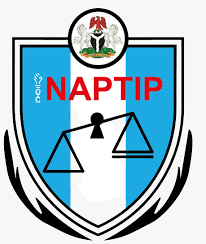By Ibironke Ariyo
The National Agency for the Prohibition of Trafficking in Persons (NAPTIP) has raised concern over the growing use of mobile phones and digital platforms to carry out trafficking and other forms of abuse.
NAPTIP’s Director-General, Hajia Binta Adamu-Bello delivered the warning on Thursday in Abuja at the DEVATOP TALKAM Human Rights Dialogue and Case Management Forum.
Adamu-Bello said the issues under discussion at the forum were central to strengthening Nigeria’s response to human trafficking and violence against persons.
She added that NAPTIP remained fully committed to active partnership with stakeholders to reduce such crimes to the barest minimum.
“The evolution of trafficking patterns has made mobile devices, particularly smartphones, a key tool for luring, exploiting and assaulting victims, including women, children and increasingly, young boys.
“No one is safe from emerging online threats,” she maintained.
The NAPTIP DG told participants to reflect on how almost every individual now carried a handset, noting that the same device had become a major channel for recruitment, abuse and exploitation.
Bello described the trend as alarming and said it underscored the urgency of improving digital safety awareness, strengthening collaboration and promoting early reporting of suspicious activities.
She praised the TALKAM Human Rights App, noting that it had gained widespread use globally and was already helping communities report violations more quickly and directly.
She urged participants to download the TALKAM App on their phones, emphasising that widespread adoption of the platform would improve data collection, referrals and coordinated response.
She reaffirmed NAPTIP’s readiness to support all initiatives that enhance reporting, strengthen community participation and protect vulnerable groups from exploitation.
She assured them that the agency would continue to stand with partners in the fight against trafficking and violence.
In her goodwill message, Aishat Braimah, Project Coordinator for Trafficking in Persons and Smuggling of Migrants, UN Office on Drugs and Crime (UNODC), reaffirmed commitment to strengthening Nigeria’s protection systems for migrants and survivours of trafficking, exploitation and violence.
Braimah commended Devatop Centre for African Development and partners, including the German Embassy, for convening the forum, describing it as timely in advancing coordinated and rights-based responses.
She said effective case management remained central to safeguarding the dignity, safety and justice needs of migrants, especially those who have survived exploitation.
“Survivour pathways depend on a well-structured network of first responders, law enforcement actors, service providers and civil society organisations working together to ensure accountability and comprehensive support.”
She said the focus of the forum aligned with UNODC’s ongoing collaborations with national institutions and civil society across the country to improve identification, referral, investigation, prosecution and victim-support systems.
Braimah added that the agency’s technical assistance, including capacity building, legislative alignment and digital innovation was anchored firmly on a human rights-based approach that prioritises the most vulnerable.
Speaking on emerging trends, she noted that the digital age presents both opportunities and risks, adding that technology was now used to facilitate various forms of exploitation.
“It is also enabling improved reporting, enhanced coordination and more accessible support services for victims,” she said.
She reiterated UNODC’s commitment to working with government, civil society, development partners and innovators to build a Nigeria where migrants, survivours and citizens could access justice and effective protection.
Highlight of the event were panel discussion on management progress, logistics, skills and funding challenges and way forward.(NAN) (www.nannews.ng)

